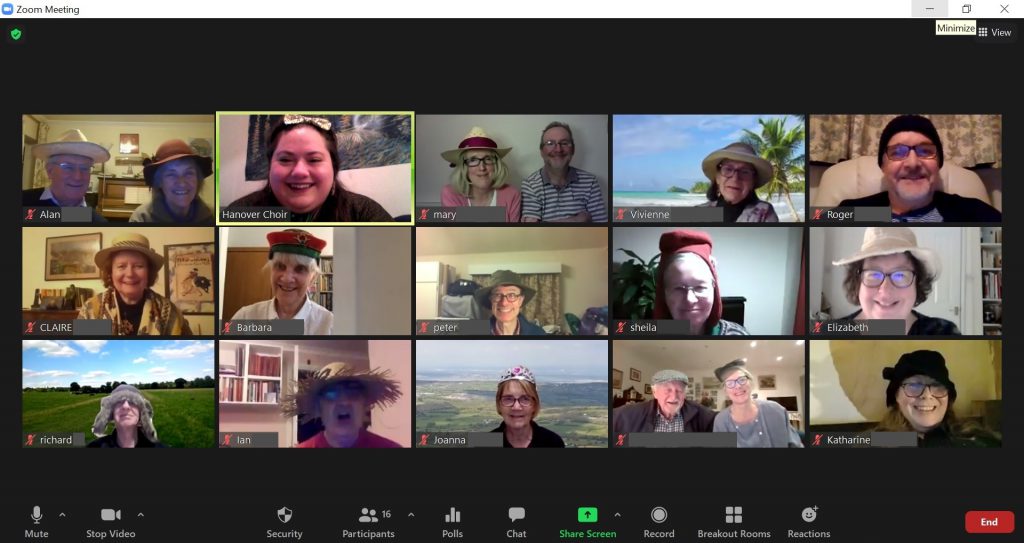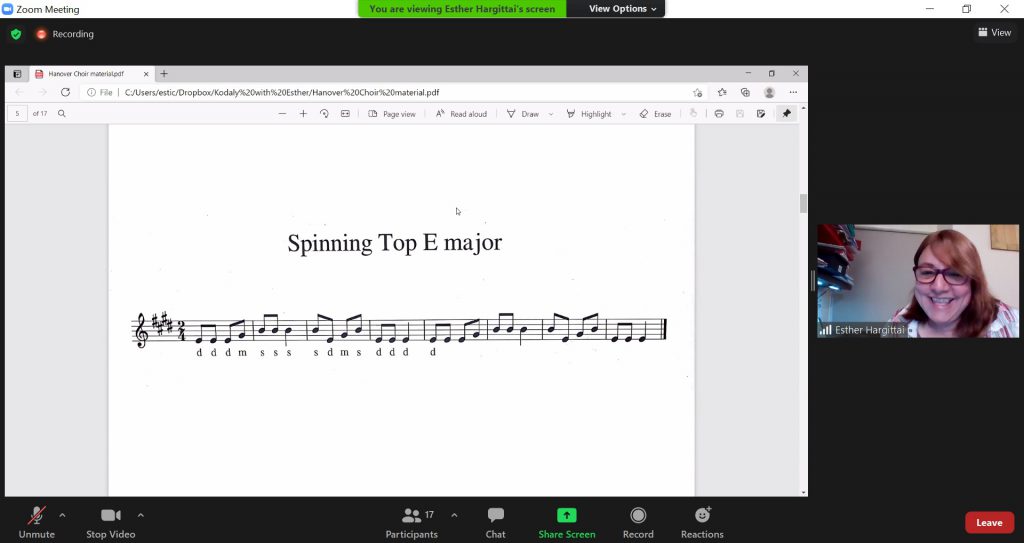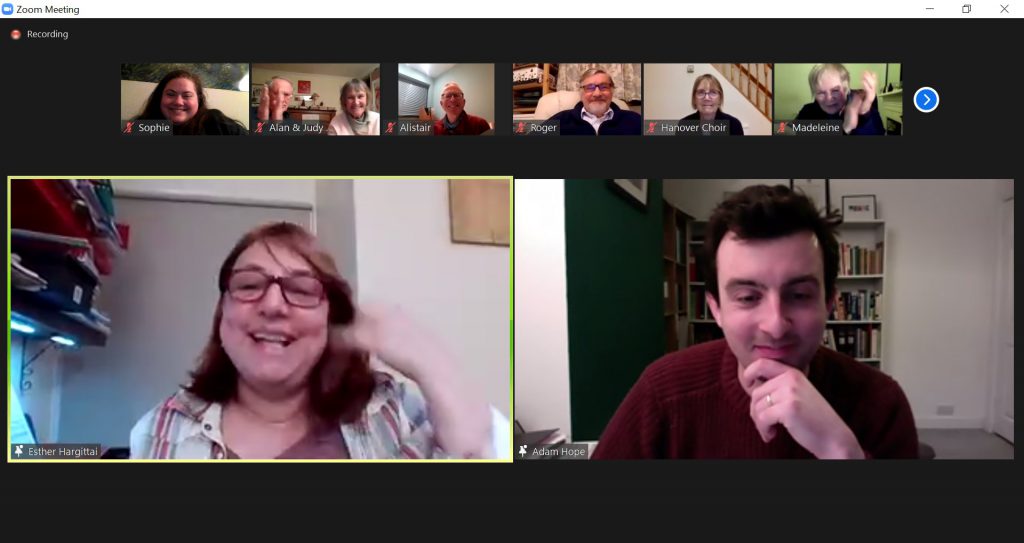A Merry Unbirthday

Like everyone else, we’ve been reflecting on the last year recently. But let’s not get ahead of ourselves.
Before taking a week off for half term, we devoted another rehearsal evening to a social. A member of the choir suggested making the evening carnival themed as this took place just after Fat Tuesday, so everyone was encouraged to wear a hat or headpiece of some variety for a bit of fun. We were impressed by how up for it everyone was! The quiz itself was largely about popular music, though there was one round devoted to Mardi Gras traditions around the world.

After half term, we returned to an evening devoted entirely to revisiting an old favourite, Mozart’s Requiem. Members were encouraged to bring a friend to this session as the piece is so widely and well known, and we did welcome a few new faces to that session. Adam introduced the evening with some history of Mozart and the piece. We made our way through several movements, some in greater detail than others, and we also split off into sectionals for a bit of focussed study. Adam even gave us a little quiz on the facts about the piece we had learned throughout the evening. Thanks to Adam for a wonderful session! We can’t wait until we can perform a big piece like that again, all together.
We had a couple of themed sessions this term, the first being on English music from Tudor to Baroque. Adam spotlighted a few key composers, giving us some biographical information and then taking us through a piece or two. This session focussed on Purcell, Tallis and Byrd, among others, and we rehearsed several pieces including Tallis’s If Ye Love Me, and Byrd’s Ave Verum Corpus.
The second of these themed sessions focussed on French 20th Century music, including composers Duruflé, Vierne, Dupré and Widor. While the choir has performed the Duruflé Requiem on multiple occasions, it was interesting to get to know some of these other composers whose work we’re collectively less familiar with.
This evening of French music happened to fall on a grim anniversary for the choir, namely that of our last rehearsal together in person. We made sure to mark the occasion, and to thank all of our members for sticking with us and making the best of a bad situation. We’re proud of how we’ve adapted during this year of constant change and uncertainty, but we sure do look forward to singing together again as soon as safely possible. The good news is that many of our members have had their first vaccinations already, so there is light at the end of the tunnel!
Our last session before the Easter break was a workshop facilitated by our guest Esther Hargittai. Esther furthered and deepened our knowledge of SolFa and using it to sight-read. We learned to parse different melodies like you would the rhyme scheme in a poem:
Music to hear, why hear'st thou music sadly? A Sweets with sweets war not, joy delights in joy. B Why lov'st thou that which thou receiv'st not gladly, A Or else receiv'st with pleasure thine annoy? B
If the first two lines in a song/melody have the same tune, then they’d both be ‘A’, and then the next line which is different would be B. And very often, line A returns again at or near the end, at least in the examples we were looking at. We also learned that if the line is very similar to A but not *exactly* the same, then it would be called ‘A variation.’

To put this into action, we sang a few songs in canon together. Then Esther reminded us about the SolFa hand signs and taught us how to sing in canon by ourselves by using our voices and the hand signs starting at different times. Not the simplest skill to master, but certainly a useful one during these times when we’re all singing by ourselves! I keep dancing on my own…
Esther also talked about major and minor variations of the same tune, and gave us some examples. In one instance, she asked us which version we preferred, and I have to wonder what it says about me that I much preferred the minor version…
Finally Esther introduced us to a traditional Hungarian wedding song called Kis Kece Lányom, which highlighted a lot of the concepts we’d been learning about like similar lines (variations) and the haunting beauty of songs in minor keys. She also pointed out how celebrated Hungarian composer Béla Bartók incorporated the melody of this folk song into one of his pieces.

Many thanks to Esther for joining us and for a wonderful evening of music. This was a really interesting session and a great way to end the term on a high before the Easter break. We still don’t know exactly what the future holds, but in our 75th year it’s nice to feel the community is still going strong despite the challenges of the past year.
